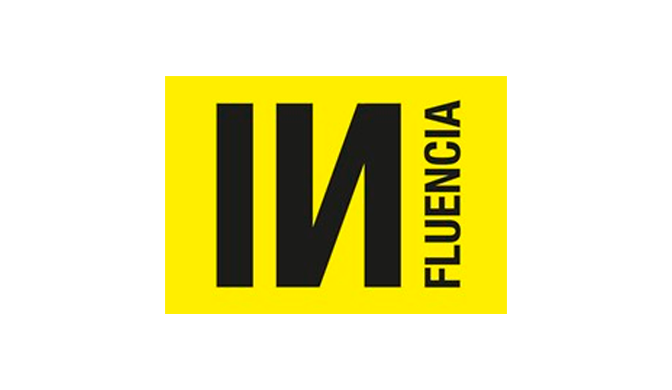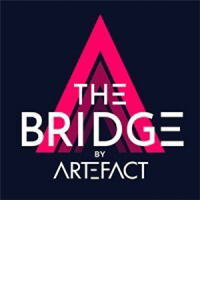Data marketing pure player Artefact is entering a new chapter in its development marked by the acceleration of its international expansion. The company is leaving the stock market and welcoming two investment funds (Ardian and Cathay Capital) in order to deploy its strategy of capturing market share through external growth. The American market is a priority for Artefact in its bid to become a world champion in data services.
The CEO of Artefact, Vincent Luciani, tells INfluencia about his decision, along with Guillaume de Roquemaurel and 60 company managers, to exit the stock exchange by partnering with two investment funds (Ardian and Cathay Capital).
INfluencia : You accepted a simplified tender offer from Ardian and Cathay Capital. Why?
Vincent Luciani : My partner Guillaume de Roquemaurel and I wanted to get out of the stock market. We’d been planning our move for two years and were seeking funds to support our company’s growth. And we’re very happy we found them. With Guillaume and 60 Artefact managers, we’re participating in this offer by significantly reinvesting with Ardian.
Why did you decide to exit the stock market?
V.L. : The stock market is good, but the opportunities offered by investment funds are even better. This move will allow us to better align the interests of our investors with those of management. It will also offer us a long-term perspective, unlike the stock market, which is focused on the short term, with quarterly publications. Investment funds have an average cycle of 4 to 7 years. This longer perspective gives us the peace of mind we need to achieve the robust expansion we want. Ardian is a world leader perfectly in phase with our desire to expand internationally.
You already have a global network. What do you mean when you say you’re accelerating your geographical expansion?
V.L. : Our network is in fact already extremely diversified: we’re present in 15 countries across five continents. International business already accounts for more than half of our turnover. We’ll be recruiting 550 people in 2022. Our ambition is to triple in size by 2025. Our aim isn’t necessarily to open new offices, but to reinforce our presence on each market through external growth. The United States, where we opened an office a year ago, is a priority for us. To gain international market share, we’re going to first focus on acquiring companies operating in our core business: data-driven marketing. We’ll look for the ones that have similar DNA to ours and that can meet our requirements.
Your group is already a reference in data services, even beyond your historical business of data marketing. Can you describe Artefact’s current position in this vast data market and the direction in which you want to move?
V.L. : The data market is undeniably massive: it’s worth 200 billion dollars [see IDC forecasts here, N.B.]. Our turnover is just under 100 million euros. We are a pure player, a champion of consulting and technological support with a historical scope: data-driven marketing. At the same time, we’ve developed other offers that we hope to expand in the coming years. We support companies in their data-driven transformation by helping them choose the right big data and IT infrastructures, implement the appropriate data governance measures, reinforce their skills, etc. We install data factories at our clients’ sites to accelerate and solve their business problems (we currently have major projects at Orange, Carrefour and L’Oréal). Finally, we’re deploying more and more packaged solutions to solve very specific challenges with data.
You want Artefact to become the world’s leading data services group. Where do you now stand? Who are your competitors?
V.L. : Our only pure player competitors at the international level are BCG GAMMA and Palantir. There’s also Accenture, but they’re not a pure playe. In each country, of course, we have local competitors. In France, we can mention Ekimetrics. But to my knowledge, there’s no company of a similar size to ours that can support its clients internationally as we do. Our clients are leading international companies. We want to become a French champion in data services. I think it makes enormous sense in the context of the ongoing quest for ethics and respect for consumers and the environment. A player who knows how to use data in a modern, efficient, ethical way.
For you, does being French impact the ethical stakes?
V.L. : Absolutely! The fact that we’re a global company of French origin is a huge advantage. Think of the European GDPR: the whole world is trying to copy its model. French mathematicians are renowned throughout the world. We’re building a culture of what best to do with the data we present to the world. The only thing we don’t have is infrastructure: we choose to work with our clients’ technologies. We are completely agnostic.
In 2017, you and your partners led the merger of your then start-up Artefact with the Netbooster group. How would you assess this merger today?
V.L. : The balance sheet is very positive. Our group has doubled in size since 2017, our revenues grew from 40 to 80 million euros in 2021. We succeeded in building an end-to-end data-driven marketing offer that’s among the best available, and we’ve experienced very strong international growth.
Still with regard to this merger, has current management been able to reconcile these two cultures?
V.L. : I don’t think there should be one culture but multiple cultures. At Artefact, we think in terms of communities, which we call chapters, a reference to the Spotify model. People with the same skills and culture form a chapter. Each chapter has a high degree of autonomy, as does each country. Artefact’s knowledge and expertise is the sum of these communities. This is a key factor in our success.
You make it sound so simple. What’s your main challenge right now?
V.L. : The main issue in our market is the talent shortage. There are far more projects than we can carry out because of this shortage. That’s why we’ve launched a vast training programme with the goal of building the next generation of data leaders. We’ve created the Artefact School of Data in Paris, which aims to train between 100 to 200 new employees per year for us and for the market. The school also trains people at our clients’ sites to enable them to better understand the issues around data and to not be afraid of technological disruptions. We plan to train 800 professionals at client sites this year.

 NEWS
NEWS






